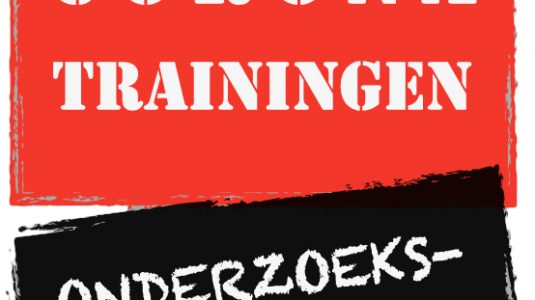This is part 2 of the VVOJ publication: Investigative Journalism in Europe (2005): Country Reports.
by Bram Vermeer
Since its sovereignty was restored in 1955, Austria has been a neutral buffer between the Eastern and Western power blocs. Because of its neutrality, many UN organizations have established offices there. The opening of the Iron Curtain in 1989 brought the neighbours from the East a little closer. Austria joined the European Union in 1995 and introduced the euro in 2001.
Since 1971, the socialist party SPÖ has been in government almost continuously. In the seventies, the party even ruled by absolute majority, as a consequence of which Austria has become a regulated country.
In 2000 this process came to a halt suddenly. That year, the government was taken over by a coalition of the right-wing populist Freedom Party (FPÖ) and the People’s Party (ÖVP). This sent a shockwave through Europe and led to the diplomatic isolation of Austria. After new elections in 2002 and successive months of negotiations, the coalition returned to power in 2003. The FPÖ, however, is losing support, especially because of the severe economic measures the coalition has introduced. In spring 2005, several leading members, including Jörg Haider, left the party. They founded a new party called the Alliance for the Future of Austria (BZÖ).
Current news media landscape
Austria has sixteen newspapers. Over the last fifty years there has been a trend towards concentration. When the Allied Forces left Austria in 1955, there were thirty-five newspapers, most of them founded by the occupying Allied government. One of them was the Wiener Kurier — now: Kurier (circulation 252,000) — which was set up by the Americans as an instrument of propaganda. Initially, Kurier had an American editor, who introduced the country to a new, more popular form of journalism than the readers were used to. This was quite successful and has greatly influenced the shape of post-war journalism. It explains why there were powerful tabloids in Austria long before they appeared elsewhere in continental Europe.
|
Austria at a glance |
|
|
Inhabitants |
8.1 million |
|
Population density |
96 per km2 |
|
Capital |
Vienna |
|
GNP per capita, PPP |
US$ 29,500 |
|
Language |
German |
|
Access law |
yes, since 1987, but not effective |
|
Corruption (10 is low, 1 is high) |
8.4 |
|
Democracy rank |
13 |
|
Freedom of the press (0 – 100) |
21 (free) |
|
Newspaper circulation |
2.5 million |
|
Circulation per thousand |
308 |
|
Circulation per household |
0.76 |
|
Newspaper reach among adults |
75 percent |
|
Number of newspapers |
16 |
|
Dominant business model |
subscription |
|
Commercial TV since |
2002 |
|
Journalists’ education |
journalism school or other higher education |
|
Journalists’ knowledge of English |
good working knowledge |
|
Female journalists |
30 percent |
|
Newsroom hierarchy |
well-defined, but with relatively much independence for reporters |
|
Journalists’ political involvement |
seldom |
|
Politicians’ media involvement |
|
|
Investigative journalism organisation |
none |
|
Number of members |
|
|
Information on the sources of these data can be found in the Introduction |
|
And this is why, in the sixties and seventies, Neue Kronen Zeitung (circulation 1.0 million) managed to become the biggest daily in Austria. It represents about forty percent of paid circulation. Nowhere else in Europe is the tabloid press this dominant.
These two big tabloids also managed to obtain strong regional positions, due to their regional editions. By 1970, many other titles had to fold because of the commercial pressure by these giants. Newspapers linked to political parties, in particular, were unable to hold their ground against this advertising power. Several major German publishers bought shares in Austrian newspapers. The publisher Springer took a stake in the re-establishment of der Standard, a social-liberal broadsheet (104,000). In 1995, the Süddeutsche Zeitung took over the stake in der Standard. Some independent newspapers are standing firm, the largest by far being the conservative Die Kleine Zeitung (298,000).
Since 2000, print media have experienced a permanent economic crisis because of a sharp rise in delivery rates and paper prices, and a drop in advertising. Newsroom staffs have been reduced by ten to twenty percent. This caused another wave of concentration. In 2004, the Austrian publisher Mediaprint joined forces with Morowa, Austria’s largest book publisher. The publisher of Die Kleine Zeitung merged with the publisher of the influential broadsheet Die Presse (120,000). The Austrian government does not seem worried about this concentration.
Mediaprint holds a monopoly over the market of news magazines. The concern now has stakes in a number of magazines, and controls virtually allleading newsmagazines: News and Profil, and the financial weeklies Format and Trend.
One remarkable publication is the independent city magazine Falter, which was established in 1977 as a critical magazine for students, but has distinguished itself by its critical reporting and investigative journalism. This originally Viennese magazine is now read nationwide.
Until 2002, there was no commercial television in Austria. The public network ORF is still the viewers’ favourite, with a market share of 56 percent. But viewers are spoilt for choice. More than eighty percent of them has access to dozens of channels through satellite or cable TV. German foreign networks attract approximately forty percent, mainly RTL, Sat1 and Pro7. The information channel ORF-2 is successful thanks to its regionally differentiated programmes with a lot of local news and reports. In 2002, ATVplus entered the market, the first national commercial network. It attracts approximately three percent of the viewers.
ORF dominates radio broadcasting with an 85 percent market share. Commercial radio is largely controlled by print publishers. Krone Hitradio, owned by Mediaprint, reaches three percent of listeners. A chain of regional stations, run by regional newspapers, has a joint market share of five percent.
A profession under pressure
Journalists who regularly participate in investigative projects sounded quite frustrated in the interviews. During the past five years, work pressure has greatly increased due to staff cutbacks. Investigative journalists have become soloists, who have to squeeze their research in between other tasks. Several famous Austrian investigative journalists seem to be doing something else now. Or they finally get to do some proper investigations once they are retired.
In our conversations, it was often implied that publishers are not keen on investigative journalism. ‘It damages their networks, and often results in legal proceedings. To them, the costs of investigative journalism do not balance the benefits’, said one journalist who regularly publishes articles on involvement of politics with business.
Many journalists are worried about the quality of their profession. This has led to the creation of the Initiative Qualität im Journalismus in 2000, the initiative for quality in journalism. It is a cooperation of training centres, media scholars and journalists. The association has over 200 members. It aims to examine and discuss changes in media practice and journalism.
This attention for quality has also led to changes in the system of press subsidies. Traditionally, the postal charges of newspapers were subsidised by the government. As of December 2003, the state funding has been split. Now training centres, press clubs and in-house training courses are also granted financial support. Additionally, regional diversity is encouraged and financed, by granting funds to regional papers that are not market leaders. The annual amount of subsidies is approximately 14 million euro. A number of new training courses have been initiated as a consequence of this new system of subsidies.
Several Austrian investigative journalists feel inspired by their German colleagues. Der Spiegel’s tradition, for example, is well known. But the circulation of German media is smaller in Austria than in neighbouring Switzerland. The increasing role of German publishers on the Austrian market has not led to closer ties with the German journalism tradition.
Newsrooms do not often make use of mid-career training, according to the respondents. As a result of reorganisations, old hands disappear and young inexperienced journalists are appointed on a freelance basis. Freelancers do not have a contract and are paid per word; even for more in depth, long-term jobs they usually do not get additional pay for research. So it is no wonder that none of the interviewees knew of a freelancer who worked as an investigative journalist. The fact that many investigative publications end up in a lawsuit probably also plays a role. (see below)
Electronic resources have obviously brought journalism into a higher gear. As a rule, investigative journalists have access to databases with, for example, economic data. But they have had to teach themselves how to use them.
Despite the time pressure and concerns about quality, different media do not cooperate with one another, not even if they belong to the same company. This is due to stiff commercial competition, but also because they are afraid that someone else might ‘snatch the scoop’. However, some regional papers do work together. They have, for example, joint correspondents for foreign sports events and participate in regional radio networks.
Subjects of investigative journalism
Bribery, abuse of information by the secret services, Stasi activities in Austria, construction fraud, malversation in the purchase of military equipment — these issues are no minor challenges for Austrian investigative journalists.
The conservative-populist party FPÖ offers a source of stories that do not occur in other countries, as in the case of an espionage affair in 2000. A member of the FPÖ stated that the party had obtained information from the secret service about an artist, which the party subsequently passed on to the tabloid Neue Kronen Zeitung. A large number of investigative journalists threw themselves into the affair. Slowly but surely it became clear that for years the FPÖ had systematically discredited political opponents and had stimulated racism. Dieter Böhmdorfer, Jörg Haider’s lawyer, played an important part in this affair. Later, when he was appointed Minister of Justice, the affair led to him sharpening press laws. (see below)
Because of its geographic location, Austria also plays an important role in matters concerning the Russian and Balkan mafia and Russian oligarchs. The affairs do not only involve financial transactions, but also infiltration into the government. As became clear from one of Falter’s disclosures, the police use mafia informants, themselves murder suspects, and the Home Office is involved as well. ‘I often find out about similar affairs from Russian journalists’, says an Austrian journalist. ‘They pass these stories on to me because they are too afraid to publish them.’
Top industrialists are also an interesting subject of disclosures in Austria, especially when it concerns their high remuneration and malversations with bankruptcies. For example, Format disclosed that André Rettberg, the big boss of the Libro chain of bookshops, had embezzled assets after the company was quoted on the stock exchange, but shortly before the company went bankrupt due to their unfortunate escapades on the Internet. Shareholders lost millions of euros.
Many of these affairs have international ramifications. Yet there are only a few journalists who travel abroad or who involve foreign colleagues. Often all they can do is sift through databases with foreign publications.
The Austrian media also regularly present well-researched historical topics that kick up a dust. Austria’s history offers many points of departure, with the complications of World War II, the subsequent division in allied zones and the long-standing argument with Italy about the South Tyrol region (Alto Adige).
Two political programmes on ORF2 dominate investigative journalism on television. One example: towards the end of 2004, the entire country was gripped by commotion because of a programme by the ORF on the treatment of conscripts. Soldiers with bags over their head were subjected to ‘hostage games’. The programme led to the resignation of the military officers involved.
Freedom of press and accessibility of information
‘I never ask a public official about the content of a document’, said one investigative journalist. ‘Just asking the question is considered as instigating the violation of the code of professional secrecy. Lawyers actually make use of it to lodge a complaint against people. You have to be careful while formulating your questions. I only ask the public official if he has the document at his disposal. If he then starts to talk about the content, at least I have not directly asked him for it!’
The right-wing populist FPÖ-minister Böhmdorfer has even tried to sharpen this rule in 2001, by making the offence punishable with imprisonment. But massive protests of journalists and foreign media organisations have prevented this. Currently there is a bill being drafted which should render government information publicly accessible, at least in principle. But it seems unlikely that it will be passed.
The legal climate in Austria has become increasingly problematic during the last ten years. According to some interviewees this is one reason why there is less investigative journalism than a few years ago. Several investigative journalists have been sued. Usually, the publisher is charged, but sometimes also the reporter. This is probably also explains why there are hardly any investigative journalists working on a freelance basis. ‘By practising investigative journalism, young colleagues and the loss-making media risk their continued existence, because of the tightened legislation and the extremely hostile judicial sentences against investigative journalists’, says journalist Wolfgang Fellner. He is the founder of several magazines, including the successful current affairs magazine News, which does a lot of investigative work.
Before publishing important disclosures, journalists almost always seek legal advice. That is also why many investigative journalists are extremely well informed about media law. Instigating a violation of a person’s professional secrets is a common accusation. It prevents journalists from quoting leaked documents. But not all journalists care about that. ‘Convictions are just part of the job. The publisher knows it too, and backs you anyway’, says one.
Other grounds for charges are related to privacy law. In the case of an important disclosure on a corruption scandal, it would be very complicated to name the key figures. ‘But you can name the company though, and that is often what it is about’, states a business journalist. ‘You are limited, however, in the way you present the story. If you want to write a vivid story and want to describe people in detail, you have to change their names.’ Further more, companies can claim damages suffered as a result of a disclosure. Frequently, the judge awards compensation of 10,000 to 15,000 euro.
Around the turn of the century, the number of court cases was cranked up by the right-wing populist FPÖ. The party took an extremely hostile attitude towards the press — ‘Ninety percent of what they write about us is lies’. Slander cases were frequent. Informants of journalists can also expect to be taken to court, once their names come out. Currently the number of political court cases has decreased, probably because of the lack of success and the FPÖ’s diminishing electoral appeal.
Several journalists complained about court cases in which the party filing the case does not stand a chance. The journalists involved are convinced that the suing party has the sole intention to silence them. Trials make it hard for journalists to use verbal testimonies as a source, because they are not sure whether sources will be willing to repeat their words in court.
Journalists in Austria are subject to a code of professional secrecy. As a result, in principle, newsrooms cannot be monitored or searched, and it prevents journalists from having to provide testimony in court. But this right does not apply if the journalist himself is accused. In 2002 Florian Klenk, editor of Falter, could prove that he was being wiretapped when he spoke to a renegade secret service official. ‘I always count on it happening’, says a colleague from another medium. ‘It means you cannot do much by telephone. Important meetings always take place face to face. And that is very time-consuming.’ In our interviews, journalists often shrugged off these practices. ‘It is like rain, you cannot do anything about that either. If necessary, you just get wet.’
Many journalists — including investigative journalists — went into PR recently, driven out of journalism by staff cutbacks and simultaneously, commercial companies expanding their PR departments. ‘PR and journalism are no longer balanced; it is becoming increasingly hard to offset the power of advertising. And another journalist said: ‘Once you make an exposé about a company, you can expect a massive counteroffensive. You cannot ignore that.’
As of 2002, the Austrian Press Council became defunct. This was due to a media campaign by the FPÖ and the Neue Kronen Zeitung against the Czech nuclear plant near Temelin, on the eve of the Czech entry into the European Union. The Press Council criticized the paper, and was in turn, accused of political agitation. The Neue Kronen Zeitung and Die Presse withdrew from the Council, and the newspaper publishers VÖZ followed suit afterwards. Consequently, there no longer is a self-regulating press body.
Many respondents do not take the public broadcast network seriously as a platform for investigative journalists. ‘It is a state network, and as such it cannot be critical of government institutions’, it was said repeatedly. The network is indeed subject to considerable political influence. Top positions are political appointments, and many political conflicts are settled in ORF offices. The new broadcast law (2001) prohibits the appointment of politicians to the network, but appointments are nevertheless still influenced by politics.
One incident late in 2001 illustrates the dependence of the network. FPÖ leader Jörg Haider, governor of the federal state of Carinthia, was interviewed near Ground Zero, shortly after the terrorist attacks in New York. The ORF broadcasted the interview in its entirety. The interviewer was Haider’s adviser; the camera crew was hired by Haider. The ORF later justified this by saying ‘that it had had to save on expenses’.
Recently the network has been sailing a more independent course, which could be related to the waning popularity of the FPÖ. Yet the ORF regularly throws a spanner in the works by increasing the broadcast tax, by personal conflicts in the news and current affairs department, and by plummeting ratings and advertising income.
Perspective
Investigative journalists are often the only reporters in the newsroom that work on in–depth long-term projects. In spite of economic and legal pressure, important disclosures are made. Thanks to their massive protest, journalists have managed to counteract a further erosion of media law. Another positive element is that the Parliament is now discussing a freedom of information act.
References
Fabris, Hans Heinz (Hrsg.) (2003), Bericht zur Lage des Journalismus in Österreich: Ein Qualitäts-Monitoring, Erhebungsjahre 2002/2003. Abteilung für Journalistik und Angewandte Kommunikationswissenschaft der Universität Salzburg.
Fabris, Hans Heinz, Rudi Renger, Franz Rest (Hrsg) (2002), Bericht zur Lage des Journalismus in Österreich: Ein Qualitäts-Monitoring, Erhebungsjahre 2001. Abteilung für Journalistik und Angewandte Kommunikationswissenschaft der Universität Salzburg.
Huber, Christian (1998), Das Journalismus-Netzwerk: Wie mediale Infrastrukturen journalistiche Qualität beeinflussen. Studienverlag, 1998.
Mailander, Peter (2000), Konzentrationskontrolle zur Sicherung von Meinungsvielvalt im privaten Rundfunk: Eine vergleichende Untersuchung der Rechtslage in Deutschland, Frankreich, Italien, Großbrittannien, Spanien, Österreich sowie den Niederlanden und im Europäischen Recht. Ph.D. Thesis Universität Hamburg, Nomos Verlaggesellschaft, Baden-Baden.
Steinmaurer, Thomas (2002), Konzentriert und verflochten: Österreichs Mediensystem im Überblick. Studien-Verlag, Innsbruck.
Weber, Stefan (2000), Was steuert Journalimus? Ein System zwischen Selbstreferenz und Fremdsteuerung. UVK Medien, Konstanz.
Weber, Stefan (2000b), ‘Wenn Journalismus fremdgeht’, Message nr 3.








